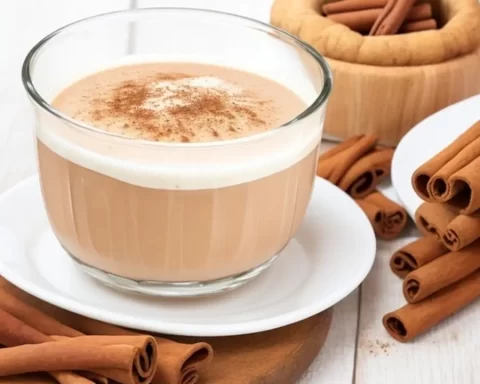New Delhi, January 24, 2024: Your body requires good cholesterol to function properly, but it is crucial to make sure you keep its ‘bad counterpart’ in check.
Excessive levels of ‘bad cholesterol’ and other substances can lead to plaque forming in the arteries, elevating the risk of conditions such as coronary heart disease, heart attack and stroke, says the British Heart Foundation.
Cholesterol travels through the blood on proteins called “lipoproteins.” Two types of lipoproteins carry cholesterol throughout the body:
- Low-density lipoprotein (LDL) or “bad” cholesterol. Having high levels of LDL cholesterol can lead to plaque buildup in your arteries and result in heart disease or stroke.
- High-density lipoprotein (HDL) or “good” cholesterol. HDL is known as “good” cholesterol because high levels of it can lower your risk of heart disease and stroke.
- Triglycerides, a type of fat in your blood that your body uses for energy. The combination of high levels of triglycerides with low HDL cholesterol or high LDL cholesterol levels can increase your risk for heart attack and stroke.
- Total cholesterol, the total amount of cholesterol in your blood based on your HDL, LDL, and triglycerides numbers.
HDL, or “good,” cholesterol helps remove cholesterol from the body through the liver. High HDL cholesterol levels can reduce the risk of heart problems and strokes.
Cholesterol, a blood fat transported by proteins called lipoproteins, is produced in the liver and can also enter the bloodstream after eating foods high in saturated fat, such as lamb, pork, beef, and poultry with the skin on. Additionally, full fat milk, as well as dairy products derived from them such as butter, cheese, and ice cream, contain saturated fats. Perhaps surprisingly, both palm oil and coconut oil also contain saturated fats.
But in an effort to keep you healthy, nutrition experts have revealed 15 foods that can be incorporated into any diet to improve cholesterol levels.
The experts says: “Our cholesterol is really important to overall heart health and wellbeing and we should take good care of it. The good news is there are foods out there that can lower high cholesterol levels and provide us with good cholesterol which is important in keeping our arteries clean.
“The following 15 food things we should be incorporating into our diet. It’s important to remember that good cholesterol health comes from other elements, too. A healthy diet, regular exercise and limits on alcohol and smoking are all crucial to good heart health.”
Fifteen foods to help lower cholesterol level
Eggplant
Eggplant is high in dietary fiber with 1-cup containing 2.4 grams. As the American Heart Association (AHA), fiber helps improve blood cholesterol levels. It also reduces the risk of developing:
- heart disease
- stroke
- obesity
- type 2 diabetes
Okra
Okra, or lady’s fingers, is a warm-season vegetable that people cultivate worldwide.
Researchers have found that a gel in okra called mucilage can help lower cholesterol by binding to it during digestion. This helps cholesterol leave the body through stool.
Apples
A small 2019 study found that among 40 participants with mildly high cholesterol, eating two apples a day reduced both total and LDL cholesterol levels. It also lowered levels of triglycerides, a type of fat that enters the bloodstream after a meal.
One apple can contain 3–7 gram of dietary fiber, depending on its size. In addition, apples contain compounds called polyphenols, which may also have a positive effect on cholesterol levels.
Avocado
Avocados are rich in heart-healthy nutrients. A 2015 study concluded that eating one avocado a day as part of a moderate fat, cholesterol-lowering diet can improve cardiovascular disease risk, specifically by lowering LDL cholesterol without lowering HDL cholesterol.
One cup of avocado contains 14.7 gram of monounsaturated fats, which can reduce LDL cholesterol levels and lower the risk of heart disease and strokes.
Fatty fish
Omega-3 fats, such as eicosapentaenoic acid (EPA), are essential polyunsaturated fats found in fish such as salmon, mackerel, and sardines, with well-documented anti-inflammatory and heart health benefits.
EPA can help protect the blood vessels and heart from disease by lowering levels of triglycerides. This is one of many ways it may prevent atherosclerosis and reduce the risk of cardiovascular disease.
Other heart health benefits include preventing cholesterol crystals from forming in the arteries, reducing inflammation and improving the way that HDL cholesterol works.
Oats
Oats significantly improved blood cholesterol levels over a period of 4 weeks in a small 2017 study. The team found that the participants’ LDL cholesterol levels fell by 11.6% in 28 days.
Other research from 2019 confirms that the soluble fiber in oats lowers LDL cholesterol levels and can improve cardiovascular risk as part of a heart-healthy diet.
A person can add oats to their diet by eating porridge or oat-based cereal for breakfast.
Barley
Barley is a healthy grain rich in vitamins and minerals and high in fiber.
A 2020 paper found that a soluble fiber — beta-glucan — reduces LDL cholesterol by trapping bile acids and limiting how much cholesterol the body absorbs during digestion.
The body uses cholesterol to produce bile acids, replacing trapped ones, which leads to an overall reduction in cholesterol levels.
The beta-glucan in barley also has a positive effect on the gut microbiome and blood sugar control, further benefiting heart health.
Nuts
Nuts are a good source of unsaturated fats, which can help lower LDL cholesterol levels, especially when they replace saturated fats in the diet.
Nuts are also rich in fiber, which helps keep the body from absorbing cholesterol and promotes its excretion.
All nuts are suitable for a heart-healthy, cholesterol-lowering diet, including:
- almonds
- walnuts
- pistachios
- pecans
- hazelnuts
- Brazil nuts
- cashews
Soy
Soybeans and soy products, such as tofu, soy milk, and soy yogurt, are suitable for a cholesterol-lowering diet.
A 2019 analysis of 46 investigations into the effects of soy on LDL cholesterol found that a median intake of 25 gram of soy protein per day over 6 weeks lowered LDL cholesterol by a clinically significant 4.76 milligrams per deciliter.
Overall, the researchers concluded that soy protein can reduce LDL cholesterol by around 3–4% in adults, cementing its place in a heart-healthy, cholesterol-lowering diet.
Dark chocolate
Cocoa, which is in dark chocolate, contains flavonoids, a group of compounds in many fruits and vegetables. Their antioxidant and anti-inflammatory properties can benefit health in various ways.
In a 2015 randomized trial, participants drank a beverage containing cocoa flavanol twice daily for 1 month. By the end of the trial, their LDL cholesterol levels and blood pressure had decreased, and their HDL cholesterol levels had increased.
However, people should eat dark chocolate products in moderation, as they can be high in saturated fats and sugar.
Lentils
Lentils are rich in fiber, containing 7.8 gram per half-cup portion. Fiber can prevent the body from absorbing cholesterol into the bloodstream.
A small 2015 study that included 39 participants who had type 2 diabetes and overweight or obesity demonstrated the positive effects of eating lentil sprouts on cholesterol levels.
Garlic
People can use garlic in many dishes and it has many health benefits.
For example, researchers have found that garlic can help regulate serum cholesterol levels. A 2015 meta-analysis also determined that garlic can also help reduce blood pressure.
However, these reviews involved garlic supplements — it would be difficult to include enough garlic in the diet to have a noticeable effect on cholesterol levels.
Green tea
Antioxidants called catechins in certain teas, such as green tea, can benefit health.
A 2020 review found that green tea consumption significantly improved cholesterol levels, reducing both total and LDL cholesterol levels without lowering HDL cholesterol levels. The researchers call for further studies to confirm their findings.
Extra virgin olive oil
Extra virgin olive oil features regularly in the heart-healthy Mediterranean diet. One of its many uses is as a cooking oil.
Substituting saturated fat with monounsaturated fat, found in extra virgin olive oil, might help reduce LDL levels.
Moreover, extra virgin olive oil has antioxidant and anti-inflammatory properties that can be beneficial to cardiovascular and overall health.
Kale
Kale is an excellent source of fiber and many other nutrients. One cup of boiled kale contains 4.7 gram of fiber.
A 2016 review demonstrated the link between fiber intake and a reduction in blood fat levels and blood pressure. Including more fiber in the diet can help lower levels of total cholesterol and LDL cholesterol.
Kale is also very rich in antioxidants, which are good for the heart and help reduce inflammation.
Foods to avoid
The AHA recommends reducing the amount of saturated and trans fats in the diet to lower cholesterol and heart disease risk.
To reduce levels of LDL cholesterol, limit the intake of the following foods which contain high levels of saturated and trans fats:
- fatty meat, such as lamb and pork
- lard and shortening
- butter and cream
- palm oil
- cakes and donuts
- pastries
- potato chips
- fried foods
- full fat dairy products





